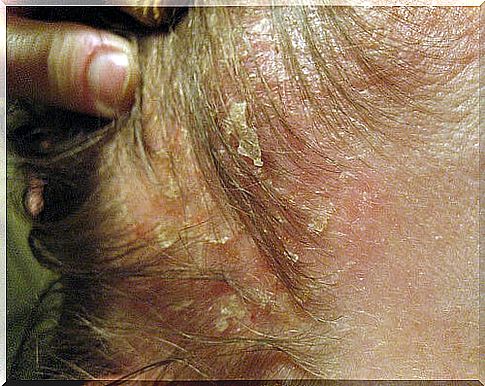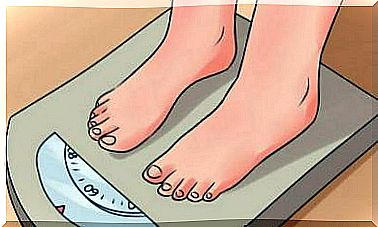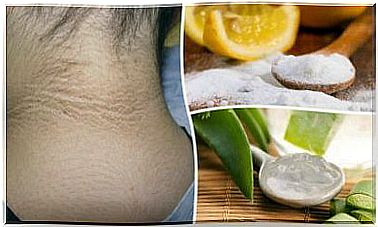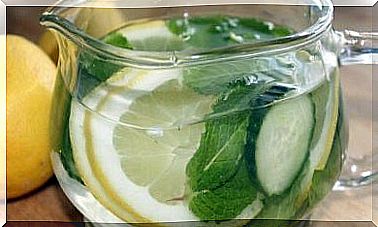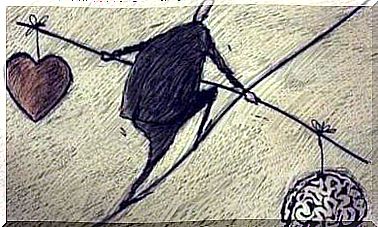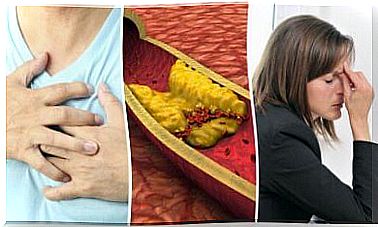Effective Remedies For Seborrheic Dermatitis
In addition to the medical treatment prescribed by our specialist, we can use home remedies to alleviate symptoms of this condition such as itching or flaking.
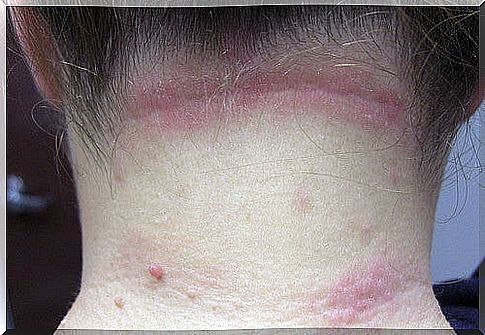
Seborrheic dermatitis is different from dandruff, although both have consequences visible to the naked eye. In addition to being very unsightly, not treating this problem can lead to complications for the scalp. In this article you will learn about effective treatments for dealing with seborrheic dermatitis.
What is seborrheic dermatitis?
Some specialists claim that seborrheic dermatitis results from the addition of two factors: the overproduction of sebum on the one hand, and the presence of a fungus called Malassezia on the other. Seborrheic dermatitis is a chronic disease that can disappear over a shorter or longer period, then reappear just as suddenly.
It can be transmitted from parent to child and be favored by certain factors such as stress, the type of shampoo used, fatigue, the outdoor climate, hard skin, the use of lotions containing alcohol, changes dermatological such as those linked to acne or obesity.
Many of these factors can be avoided, so we recommend that you take them into account to reduce the risk of contracting seborrheic dermatitis. Although most cases of seborrheic dermatitis affect the scalp, it can also affect other parts of the body such as the face, legs or arms.
It manifests as patches and scales (as if the skin is crumbling). We can only recommend that you consult a dermatologist in order to start treatment.
Natural remedies for seborrheic dermatitis
To treat this dermatitis problem directly, or in addition to products recommended by doctors, you can take advantage of the benefits of many foods and natural elements to treat your seborrheic dermatitis.
- Essential oils: a mixture of equal parts lavender oil, chamomile oil and eucalyptus oil. Add a little lukewarm water and massage your scalp. This mixture is ideal for combating itching.
- Olive and almond oil: Mix a spoon or two of each of these oils and massage the scalp thoroughly, especially when you are going through an itchy phase.
- Rosemary: Boil a handful of finely chopped rosemary leaves with three sachets of chamomile (or if using leaves, the equivalent of 3 sachets). Let cool and filter. Use this infusion as a rinse water after washing yourself.
- Lemon: cut a lemon in half and rub one half on your scalp. Leave on for ten minutes and rinse with lukewarm water.
- Mint oil: add two drops of mint oil to a cup of lukewarm water. Use this mixture to massage your scalp. Leave on for a few minutes and rinse with water.
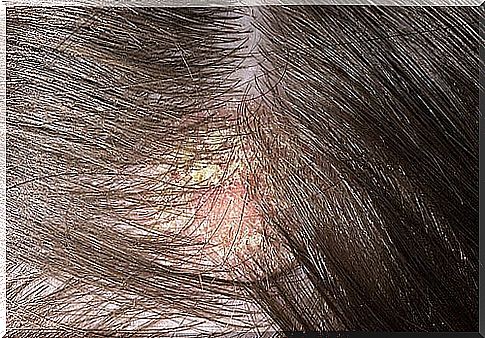
- Apple cider vinegar: mix four parts of lukewarm water and one part of vinegar in a container. Use this mixture to massage the scalp when you are itchy. In addition, it will give shine to your hair.
- Sodium bicarbonate: make a paste of water and baking soda. Add a few drops of olive oil and massage your scalp with it. Leave on for 30 minutes and rinse with hot water.
- Tea tree oil: dilute half a teaspoon of tea tree oil in 100 ml of aloe vera gel. Apply to the scalp and leave on for 30 minutes then rinse thoroughly with water.
- Fenugreek seeds: let infuse overnight two spoons of fenugreek seeds in a container of water. Grind the seeds until you get a paste then apply as it is to the scalp. Leave on for 30 minutes then rinse thoroughly with water.
- Thyme: boil two cups of water with 4 tablespoons of dried thyme for 10 minutes. Then filter the mixture and let cool. Add this water to your shampoo and gently massage your scalp. If possible do not rinse it.
- Clay: a green clay mask can be used to treat certain skin problems such as dermatitis for example, although it is also recommended for acne, oily skin and blackheads. Apply this mask once or twice a week, leaving a paste of clay and water to form. The latter will absorb excess sebum, dead cells and impurities.
- Dandelion: rinse 3 times a week with this mixture of water and dandelion. To do this, let infuse 60 grams of dandelion with a liter of water for 10 minutes. Filter and apply on the scalp as behind rinse water.
- Sea bathing: during the summer you can take advantage of your vacation to swim in the sea, which will have the effect of helping to eliminate seborrheic dermatitis. In fact, salt water and the sun reduce itching.
- Laurel: rub your scalp with a handful of crushed bay leaf at bedtime and when you get up. You can also boil the same amount of water and bay leaf, let it steep for a few minutes, filter and finally massage your head with this mixture after your shower.
- Liquorice: it is used to reduce the production of sebum and thus to better control the evolution of seborrheic dermatitis. To do this, infuse a dried licorice plant, then mix it with vinegar and use the rinse water after allowing it to steep for 15 minutes.
- Rosemary and Eggs: Use a spoonful of neutral or baby shampoo and mix in an egg yolk and four drops of rosemary essential oil. Use this mixture to wash your hair as usual.
In addition, we recommend that you eat a balanced diet to prevent the appearance of seborrheic dermatitis. Choose foods rich in vitamin B7 (corn, barley, oats, soy), selenium (apple, squash, cucumber, cabbage, garlic) and zinc (borage, asparagus, celery).
